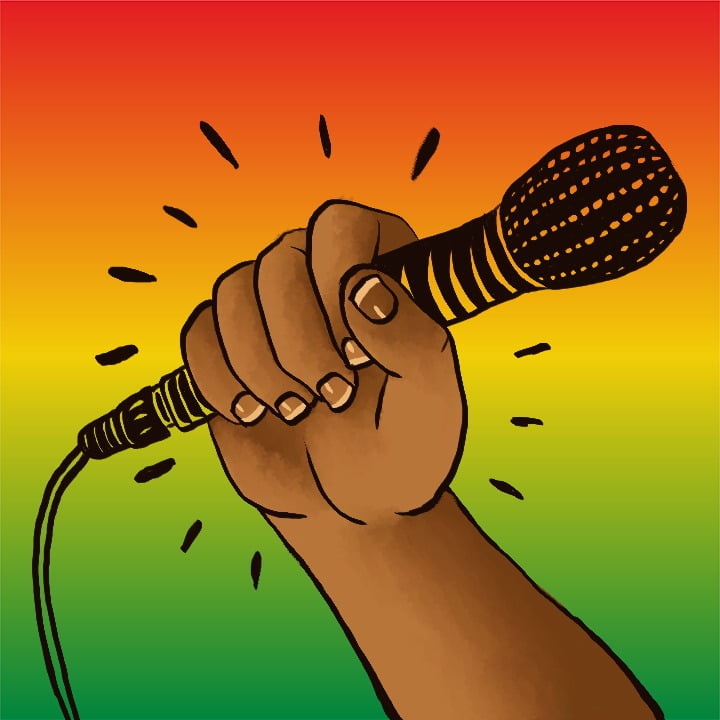By: Andrew Shibuya
For many, June is a month of celebration. Between Pride Month and the official start of summer, June’s thirty days are chock-full of various festivities and commemorations. And still, one of June’s national designations in the United States is almost wholly overlooked annually: African American Music Appreciation Month.
Though this coining of June as African American Music Appreciation Month was first introduced by President Jimmy Carter in 1979, originally dubbed Black Music Month, its current name was given by President Barack Obama in 2009. From its initiation, this commemoration was intended to serve as most generally as a celebration of all African American music in the United States.
And in a recent official White House press release, President Joe Biden voiced his own sentiments behind the importance of Black Music Appreciation month: “During Black Music Appreciation Month, we honor the innovative artists whose musical expressions move us, brighten our daily lives, and bring us together. Across the generations, Black music has pioneered the way we listen to music while preserving Black cultural traditions and sharing the unique experiences of the Black community.”
It would be premature, though, to celebrate Black Music Appreciation Month by solely celebrating a handful of the most prominent Black artists. Because what is Black music exactly? While many companies and streaming platforms have taken to commemorating various iconic artists or works, the goal of this commemoration ought to be to acknowledge and celebrate the vast influence and impact of African American music in the United States as a whole.
Of course, to even begin to fathom how to track this influence, one must attempt to define Black music itself. And inherently, the phrase, and the genre, if it can be put under a singular one, evade definition. Is Black music music simply made by Black artists? Yes. But is music inspired by or influenced by Black artists Black music? This answer is not so clear.
One of the many issues with the distinction and defining of Black music in the music industry is that oftentimes Black artists are often pushed into genres such as R&B or hip hop, which is both reductive and limiting to the artists and their work. Singer-songwriter FKA twigs spoke about this phenomenon in an interview with the Guardian in 2014: “When I first released music and no one knew what I looked like, I would read comments like: ‘I’ve never heard anything like this before, it’s not in a genre.’ And then my picture came out six months later, now she’s an R&B singer.”
For years, high profile award shows such as the Grammys have only helped to perpetuate this boxing in of Black artists. Take, for instance, the confusingly and formerly titled “Best Urban Contemporary Album” category. It was only last year that the category was renamed to “Best Progressive R&B Album”. The change was born out of the award show’s desire for more inclusivity and to better reflect the fluidity and scope of the category. In the past several years, many in the industry and in the media have called for an end to the use of “urban” in describing music, arguing that the term is a vague and limiting generalization for Black music as a whole.
And even in genres that are considered to be most influenced or dominated by Black artists, there has historically been underrepresentation in the industry. For example, just last year, producer Kaytranada became the first Black artist to win the Grammy for “Best Dance/Electronic Album”, though the genre has been unarguably most influenced by traditionally Black dominated genres such as disco and hip hop.
With these inequalities and failures of the music industry in mind, the necessity for Black Music Appreciation Month is most evident. To celebrate Black music is to acknowledge its importance in the history of American music, with respect to both Black artists and otherwise. It is likewise clear that a rigid distinction between what is Black music and what is not is not necessary–for in reality, so much of contemporary American music has been in some way touched or influenced by so-called Black music. It is an undercurrent that has served as the foundation for all of contemporary American music, and has been, in fact, so integral to all of American music.
Because for centuries now, Black music has been a keystone of the American music identity. Antonin Dvořák, a Czech composer, once cited the late nineteenth century African American spirituals he encountered in America as a great inspiration for his “New World Symphony”. Even more than simply citing these spiritual hymns as inspiration, Dvořák similarly recognized their power, importance, and place in the future and legacy of American music: “These beautiful and varied themes are the product of the soil. They are the folk songs of America, and your composers must turn to them.”
And just as Black music cannot simply be a subgenre of music, it can likewise never be defined as any one thing. Thus, Black Music Appreciation Month ought to celebrate the protean nature of Black music as well as to acknowledge the historical injustices to Black artists and musicians. From folk to the blues, from jazz to hip hop, the influence of Black music on American music as a whole is both undeniable and wholly remarkable. And just as Dvořák was prescient to recognize, Black music has become the indelible foundation and promising future of American music.






